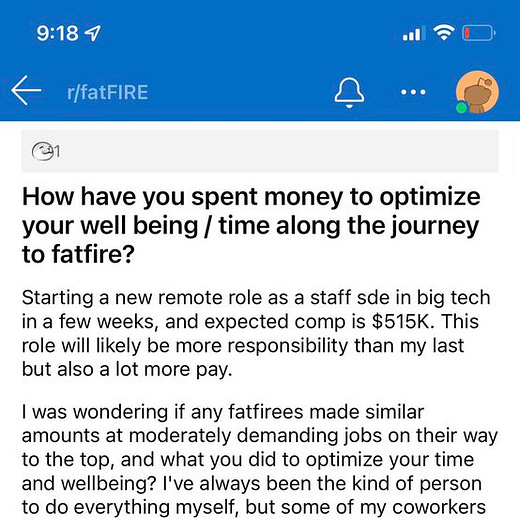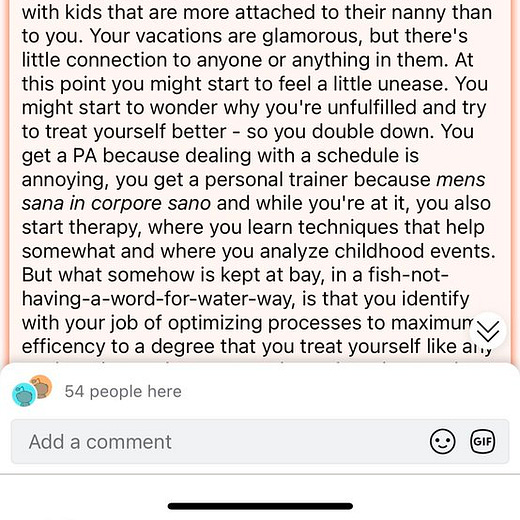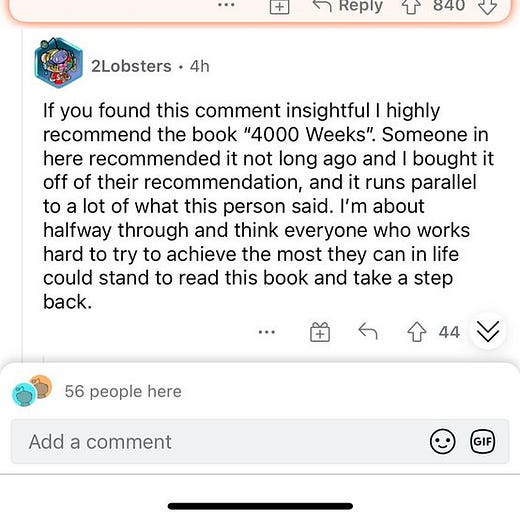M&Ms: In Defense of Real Estate Investing
Hey Team,
If I had an investment thesis, it would be this:
- Make money with bits
- Then diversify out into atoms.
Having some steady income from real estate helped me transition my career from Big Tech over to Entrepreneurship.
But being a landlord in real estate gets a bad rep these days. Rents have skyrocketed, and landlords get the blame. Even the politicians have had a field day blaming landlords. And that part isn't just in the U.S.; it's a global phenomenon.
It's hard to invest in an asset class or be in a business if others can convince you to secretly hate it in any way. And as someone who comes from poverty, I can empathize with people who feel a certain way about rent rising.
This is why I would like to tell you the other side of it. And maybe even convince you that real estate is an excellent investment and an honorable business, even for software engineers like myself.
Being convinced that it is an honorable business may sound like a small thing, but it is an important aspect of getting into anything. Because like Naval says:
And if you secretly hate landlords, you will never get into real estate, become one, or succeed with it. This is why I want to give you the other side and let you make up your own mind.
So who am I to change your mind on this? I am a small-time real estate investor and landlord; I have been in it for over 7 years now. You may also know that I am someone that was born poor and was poor until about a decade ago. And I also regularly teach the Small Bets community how to get into real estate and keep it as passive as possible while still getting the benefits of the asset class. All so they could place other bets with the rest of their time.
First, I would like to examine what might happen if landlords simply did not exist if the government owned properties and gave them out. A few years ago, AOC said, "cancel rent," and just like AOC, I, too, grew up in The Bronx, NYC. And I lived next to public housing projects, which is what it's called when the government runs housing, and everyone lives rent-free in those buildings. The American housing projects, aka The Projects, are probably world-famous by now, or rather world-infamous.
Growing up, The Projects were a scary place to walk through. Never mind living in them. This was where the drug deals went down and where a lot of bad seemed to happen. But somehow, there is this misconception, even today, that the government can do a great job with housing. But living right next to the projects, you learn that they will, in fact, do a terrible job. This is because the people that run that housing have no skin in the game. They don't live there in those buildings themselves; they don't make a profit from it. And they are highly incentivized to make do with whatever resources they have. This usually leads to run-down housing that no one wants to be around, never mind live in it. This then attracts bad actors and crime, and poor people suffer the most. Again, I know this because I grew up next to this in The Bronx.
But we don't need to just look at The Projects to understand why government-run housing is a terrible idea. We can look at the Soviet Union or any real Communist country without property ownership. For the first ten years of my life, I lived in such a country; I was born in communist Albania and then brought over to The Bronx, NYC, at ten years old. That Albanian regime with no ownership didn't survive, and neither did the Soviet Union.
Then there is the fact that people don't want to live where the government wants them to live. People want to live next to family, certain schools, or certain communities. This is where Section 8 housing can come in for poor people, which actually places people in normal apartments with normal private landlords but has the government paying their rent at the market rate; this is far more preferable but not a solution to the rent problem. The biggest problem with this is that it does nothing to help bring down rent prices for regular people that don't qualify for section 8.
Some states, and countries, have taken a creative approach to fix the problem with rent prices. Force landlords to cap rent; this is called rent control. Rent control is a popular thing for politicians, but the problem with this is that real estate is a business and if it does not make sense as a business no one will get into it. Ireland did this and found itself without a housing supply.
A tightening housing supply when real estate isn't profitable is only one of the problems.
But first, why does this happen? It's logical and common sense that you won't rent out a property for less than your expenses. As a real estate investor, at a minimum, you would have to pay your mortgage, taxes, and insurance with the rents you collect. And so the moment real estate is not profitable because rents are capped, people run away from investing in it. And something worse begins to happen; you get slumlord landlords who buy properties and run them down to the ground. They find a way to make money by not spending any fixing anything; then, in that world of rent control, everywhere becomes The Projects.
So what is the solution to the rent increases?
Some say that building more housing is the only viable solution. Increasing the supply of things usually has the effect of reducing pricing. But this pisses off homeowners who are not interested in renting. And this is a political problem. It pisses off home owners because they don't want more people living next to them; they don't want crowded schools etc.
Marc Andreesen recently took a lot of heat because he invested in a housing startup but went to his town to block new construction near him.
But he is far from the only one. This is so common that it has an acronym, NIMBY-ism, which stands for "Not In My Back Yard." All of these homeowners don't want to see their home values come down to an explosion of home supply. And the politicians will never blame them for rent prices because they are a large cohort, which means no votes if they do blame them.
And to be clear, I am not taking sides; I am just painting a picture of how we got to where we are, where society thinks real estate is a dishonorable business and landlords are to blame.
But here is the thing: I know from the last few years of being in real estate that there is nothing dishonorable about providing people with good housing. There is nothing bad about being able to buy great homes with your hard-earned money, fixing them up and maintaining them, renting them out, and making a profit from them. And at this moment, it is still one of the most accessible ways out of poverty for most of America; it was for me.
And for those that rent out of necessity and struggle with rent pricing, the government should do more to help with rent. But the only viable way to bring down rent and maintain quality seems to be to have more housing supply. So at some point we have to tackle that.
But the other thing is, people don’t just rent out of necessity. Today, many people rent out of convenience. They want the freedom to be able to move and not be tied down; they don't want to deal with an emergency, a broken roof, or a broken HVAC. And for providing that convenience, you can make a good return, and there is nothing wrong with it. More than a few of my tenants are far wealthier than me. I know because I had to qualify them to rent the place, run credit checks, etc. The thing is, I am the one that will get woken up in the middle of the night on a leak, which happens rarely, but that's the reason why they pay. And I am happy to do it.
The homes I have bought so far have been older; one was from the 1920s and falling apart; I have gone in and upgraded plumbing, electrical, HVAC, whatever it takes. I have done it well and efficiently. My homes do not in any way resemble The Projects I grew up living next to, nor will they ever. I invest in them. I don't mind doing this because I know I will eventually get my money back. Nobody will ever accuse me of being a slum-lord.
All of this is to say that real estate is a business like any other; it has expenses and makes money. And if someday the government decided to take that over fully, against history and better judgments, I and many others investing in real estate would probably be forced to invest elsewhere. But that does not mean it would be good for housing or society.
I hope this helps someone out there who may be on the fence and have heard bad things about becoming a landlord. The world needs more better landlords, that will invest in their properties and communities, not less.
A little shameless self promotion:
Chris and I will be running cohort 2 of our live Newsletter Launchpad course starting on September 13. If you have been thinking about starting a newsletter or just started one, this is your chance to do it with a community of other people.
Next week, on September 6 and 8, we will have a free webinar to give a taste of the course. Sign up for the Free Webinars:
Tuesday, 8-9PM ET
Thursday, 8-9PM ET
Or if you’d like to join us for the live 3 week course:
Sign up for Newsletter Launchpad
A Few Tweets I loved this week:
Speaking of real estate, this Tweet thread by Shrey which includes a simple excel sheet to evaluate real estate deals is pretty good.
Shrey is also an engineer investing and building wealth through real estate, and he is at the beginning stages sharing a lot of what he’s learning.
This tweet by Saira highlights the dangers of handing of your life chores to others. Often times people do this just because they can.
This is a great thread by Mekka and how to manage under performers.
One Meme I loved this Week:
Thank you for reading. I hope you have a wonderful weekend.
Louie
P.S. a reminder you can reply directly to memesmotivations@substack.com, or you can email me at louie@louiebacaj.com about this edition or any topics you’d like to discuss.













waouh man there is so much here that i didn't know about before